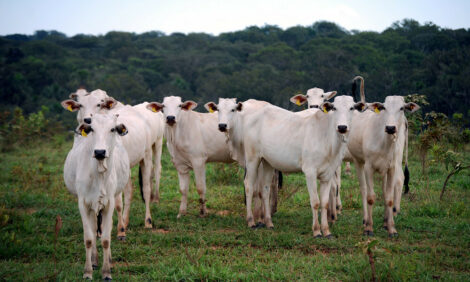



Public Justice Files Suit on Behalf of Farmers to Require COOL on Meat Products
US - Public Justice, representing the Ranchers-Cattlemen Legal Action Fund (R-CALF USA) and Cattle Producers of Washington (CPoW), filed a lawsuit in the United States District Court for the Eastern District of Washington against the US Department of Agriculture, alleging that USDA regulations that allow beef and pork to be classified as "domestic products" even when those meat products are slaughtered in other countries, confuse consumers and harm American farmers.The complaint alleges that the USDA regulations violate the text of the Meat Inspection Act, which requires, for instance, that the more than 800 million pounds of the beef raised and butchered annually in other countries and then imported to the United States should include labeling indicating the meat’s country of origin.
Despite those current USDA rules, however, multinational companies sell meat raised and slaughtered abroad with a "Product of USA" label alongside truly domestic products raised by US ranchers. Country-of-Origin Labeling (COOL), when properly implemented, helps cut through this labeling confusion and allows customers to select the domestic goods, if they prefer, which in turn rewards producers who work within domestic laws and regulations.
"Consumers understandably want to know where their food comes from, and proper labeling would not only allow consumers to make informed choices at the market, but would also be a boon for American farmers," said David Muraskin, Public Justice Food Safety and Health Attorney.
"With this suit, we’re fighting policies that put multinational corporations ahead of domestic producers and shroud the origins of our food supply in secrecy."
The USDA previously required COOL, even acknowledging that the policy corrected the conflict between its rules and the requirements of the Meat Inspection Act. However, in 2016, it reverted to its previous regulations, allowing imported meat to be passed off as domestic products, and once again violating the statute.
COOL is also expected to be a key issue in the NAFTA re-negotiations President Trump has told Congress he plans to undertake. NAFTA currently restricts the labeling on imported live cattle and hogs from Canada and Mexico, even though more than 90 per cent of consumers say they want to know whether the meat they eat was born, raised, or slaughtered abroad.
Moreover, when COOL is not properly applied to imported meat and livestock, domestic ranchers and farmers tend to receive lower prices for their meat because multinational companies can import meat and misleading present it as homegrown rather than paying domestic producers for their products.
In addition to counsel from Public Justice, the plaintiffs are also represented by Beth Terrell and Blythe Chandler of the Terrell Marshall Law Group.
You can view the lawsuit by clicking here.
TheCattleSite News Desk


